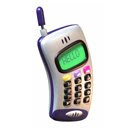
In September, Microsoft Chief Executive Steve Ballmer spent a week traipsing across Europe and parts of the U.S. schmoozing 17 of the world's largest handset makers and wireless carriers. It was Ballmer's longest trip ever aimed at drumming up support for Windows Mobile, the company's software for cell phones. The trip may not have been long enough.
In recent months, Microsoft's (MSFT) mobile strategy has hit a rough patch. In the third quarter, iPhone maker Apple (AAPL) shipped more smartphones than all 56 device makers that make Windows Mobile phones combined, according to research firm Canalys. As a result, Windows Mobile slid from its position as the world's second-most popular mobile operating system a year ago to the No. 4 spot, behind Nokia's (NOK) Symbian, Apple's OS X, and Research In Motion's (RIMM) BlackBerry.
Partners Warm to Rivals
The threats don't end there. While Windows Mobile shipments continue to grow, its share could slip if, as expected, Apple begins to sell its iPhone through Wal-Mart (WMT), the world's largest retailer. And T-Mobile G1, a phone based on Android, an operating system backed by Google (GOOG), has met with popular demand. Windows Mobile's share may drop to 11% this year from 12% in 2007, says Chris Ambrosio, an executive director for wireless at research firm Strategy Analytics. "On the important issues, they are chasing the market," Ambrosio says. "And they've got to chase much faster" to ensure continued carrier and handset makers' support, he adds.
That backing is far from assured. Speaking at a conference for Symbian partners and developers on Dec. 4, AT&T (T) executive Roger Smith hinted that his company, which offers seven Windows Mobile devices, would prefer to support one type of mobile software. The remarks were widely interpreted to mean AT&T, the No. 1 U.S. wireless service provider, would eventually focus solely on Symbian. Still, AT&T spokesman Mark Siegel more recently said, "Microsoft continues to be an important partner for us."
Whatever approach AT&T takes, other Microsoft Microsoft partners are clearly warming to rival software providers. And in a climate where manufacturers and carriers want to narrow the list of their suppliers to reduce costs, Microsoft may not always win out. On Dec. 9, the Android movement added 14 new converts, including British carrier Vodafone (VOD) and handset maker Sony Ericsson Mobile Communications, which released its first Windows Mobile-based phone, the Xperia X1, earlier this year. Cell-phone manufacturer HTC, partly owned by Microsoft, made its first Android phone, the T-Mobile G1, earlier this year.
Some longtime Windows Mobile developers are switching allegiance. Koushik Dutta, who works for a stealth startup funded by Microsoft co-founder Paul Allen, now spends as much time on Android as on Windows Mobile projects. "It will be soon mostly Android," says Koushik, who previously worked exclusively on Windows Mobile software. "I like the [Android] phone better. It's mostly a usability issue." He says Windows Mobile phones tend to lose juice fast when running graphics-intensive applications, though that's a concern voiced by some people about the G1 as well. Plus, Windows Mobile is designed for use with stylus vs. a touch interface, which is now all the rage among consumers.
But all is not lost for Microsoft. To keep partners and developers on board, analysts say Microsoft needs to adapt Windows Mobile software for use with touch interface. However, a major update may not hit the market until 2010.
Microsoft also should also follow Google's and Apple's lead in the area of wireless cloud-computing services. The move would shift energy-sapping computing power away from users' cell phones and onto the powerful servers maintained by Microsoft. Rivals are already offering such services. When you purchase an iPhone application from the Apple App Store, the payment is processed on Apple's servers rather than on an individual device. When you ask your G1 to find the nearest sushi joint, it's Google's servers and not your phone that churn out the map. In both cases, your phone doesn't do much legwork. Most of the processing is done on remote servers "in a cloud." So processing typically happens faster and it requires your handheld device to be less sophisticated—and less costly. As cloud computing spreads onto rival software-based devices, Microsoft could lose $850 million in revenue in 2012 alone, according to Bernstein Research—unless it ramps up its own efforts

0 komentar: on "Windows Mobile : What Microsoft Needs to Fix"
Post a Comment